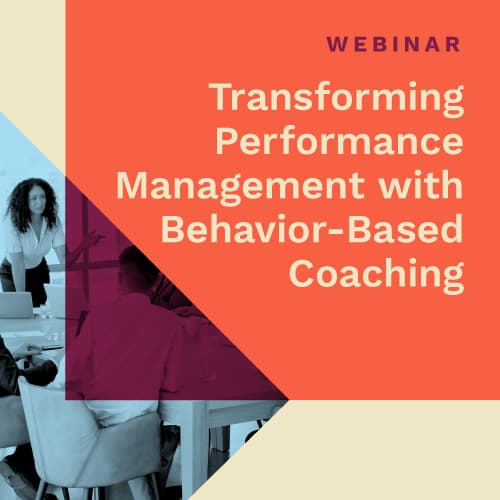Whether you're evaluating your professional career path or you work in human capital management, you may encounter or have questions about the role of personality assessment tools for recruitment and selection.
PEOPLE ASK
Are personality assessments used for hiring reliable? Is it ethicalto test qualified candidates for personality when they have the qualifications, experience and interview skills to show they are well-suited for the job? Do the results of workplace personality assessments provide measurable business value?
Can these results be used to discriminate against candidates before or after hiring decisions are made?
After nearly 70 years in the assessment industry, we’ve encountered just about every question regarding our assessment. They come from talent managers and consultants looking to learn how clients use our products to drive better hiring practices and improve performance.
Some businesses have complex, specific challenges to solve. These may include high employee turnover rates, mergers and acquisitions, or leadership team conflict. Others explore our personality assessment for objective data to enhance existing hiring and development practices. Forward-thinking companies seek to increase cognitive diversity and strengthen team effectiveness to improve performance and stay competitive. A common thread between all is the recognition of the close relationship between people and performance.
Client feedback, research, real-world pain points, and proven success stories have made us aware of how personality assessments improve performance across the talent management lifecycle. Our long-term company experience using our personality assessment has aided in the creation of an award-winning company culture. Our answer is yes - personality assessments as a tool for hiring and selection can provide measurable business value, ethically. Applied appropriately, they can increase diversity and inclusion on a deeper level to increase performance.
GETTING STARTED
Follow these steps for ideas to implement a pre-employment personality assessment in your hiring process successfully:
Step 1: Create a Robust Hiring and Selection Framework
A well-rounded hiring process that effectively evaluates qualifications, experience, interview success, individual preferences, and organizational fit can benefit from the additional insight of personality assessment data. We always recommend that organizations use personality assessment results, including those from The Birkman Method assessment, as just one data point out of many. We do not endorse the notion that personality data, in isolation, can predict success or failure. Instead, this data can be used to supplement hiring processes by providing insight into the possible strengths or setbacks that might not be apparent on a resume.
Step 2: Standardize Your Assessment Approach
How is your organization going to use the personality assessment data? Is record keeping required? Is there a debrief process that compares qualified candidates before making hiring decisions? Regardless of the questions and answers that facilitate your hiring process, we believe it's essential to have a documented and consistent implementation that hiring managers and HR teams will follow. Check out this Harvard Business Review article by Patty McCord, former Netflix Chief Talent Officer, for tips on how you can prepare hiring managers and HR teams to probe beyond the surface during the hiring process.
Whatever process you select, your framework likely includes sharing a candidate’s assessment scores with hiring managers. Doing this can help your managers formulate a robust and targeted set of questions based on findings from the assessment data that can lead to a more insightful discussion in the interview process. When executed effectively, these insights will help the hiring manager explore possibilities beyond technical skills and experience to learn how their candidates might approach goals and challenges within the role.
For example, if a candidate has a low Assertiveness score, you might ask how they have previously handled situations involving conflict, a question you might not know to ask without personality data.
Step 3: Train Decision Makers to Work with Personality Data
Our assessment data shows that individuals come with different natural strengths and blind spots. Each of us, including hiring managers, have perspectives that filter how we see the world. How we perceive our candidates is no exception. That's why it's mission-critical that organizations implement a thorough training methodology to ensure that talent management decision makers understand how different personality and behavior combinations benefit organizations—even when these benefits are counterintuitive to a hiring manager's natural preferences.
A robust training program (such as Birkman Signature Certification), will give managers a foundation in personality and behavior knowledge to ask the types of questions that can navigate past assessment results. Rather than using this reported data in isolation, managers can utilize the results to guide a personalized interview conversation that uncovers more insight. This strategy allows candidates to show their contextual behavior and perceptual attributes in more tangible ways that they relate to, allowing the hiring team to get a more authentic picture of how the individual’s perceptual drivers may impact the organization. Some of the valuable clues derived from the conversation can include the individual's motivators, values, organizational fit, potential team dynamics, causes of stress, and the ability to cope in your specific work environment.
Step 4: Continue Beyond the Hiring Process
Most of our clients use our scalable personality assessment data after the finalized hiring decision to enhance the onboarding experience and future development initiatives. Workplace cultures that encourage discussions about individuality provide expert-facilitated conversations that help build employee self-awareness within the social context of their new organization. For example, check out this FastCompany article to see how MailChimp uses The Birkman Method extensively across their organization.
PERSONALITY AND HIRING, OUR BOTTOM LINE
A well-executed investment and adoption of personality assessment in recruitment and beyond can pay long term dividends through employee engagement and cognitive diversity in high-performing organizations. The data in a scientifically valid workplace personality assessment can be pivotal within the context of an effective, broader talent management framework. The data can cite strengths but does not predict success, failure, or moral conduct in black and white terms on its own.
At Birkman, we use our assessment tools in hiring, onboarding, and ongoing collaboration across the company. This helps us connect with our coworkers and leverage the diversity of personality to utilize different individual strengths toward our common purpose: to empower people and performance. We’re proud to celebrate the impact of The Birkman Method personality assessment on our business, winning National, and Houston’s, Best and Brightest Awards six years a row, an accolade that is the direct result of the passion of our employees in our unique culture rooted in personality assessment and positive psychology.
It’s not just about personality test data, but what you choose to do with it. At our Houston headquarters, we believe that including personality assessment data in our hiring decisions helps build a shared success story for Birkman, our employees, partners, and clients.

